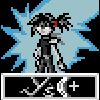char is a single character, like 'a', 'B' or '1'. Can internally be any of 256 values (on most platforms where it is 8 bits, some exotic ones use another bit-count).
char[10] is an array of 10 characters stored sequentially in memory.
char* is a pointer which holds the address in memory of a character, for example it can point at a single 'char' variable, or it can point at the address where a sequential array begins.
const char* is such a pointer that is declared constant, which means that any function accepting it promises not to change the values stored in memory at that address. Read-only access to a string is usually the meaning.
std::string is a class that internally holds a memory-buffer of many characters, and has methods to manipulate them.
For string-functions that take const char* it is usually appropriate to pass them string.c_str(), as the c_str() method returns a pointer to an address in memory where the string characters are stored sequentially, + it guarantees to end that sequence with a null-character, which means that a 'char' with value 0 will be stored at the end of the sequence. Such a null-terminator is used by many string functions to determine where a string ends.









